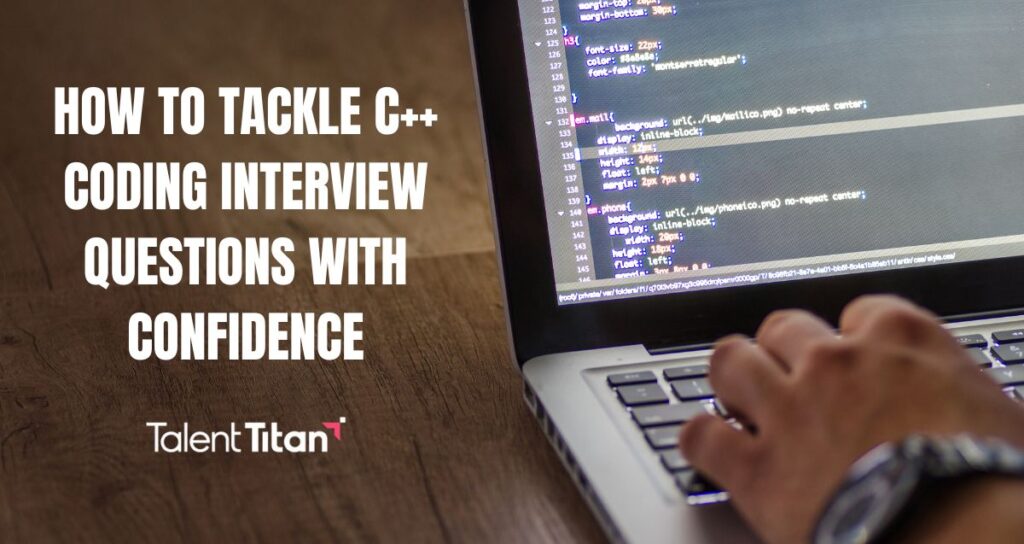1. Start with Core C++ Concepts
Every interview begins by testing your understanding of core C++ fundamentals. Make sure you’re familiar with:
- Data Types and Structures: Learn the differences between basic types, pointers, references, and arrays.
- Control Flow: Understand loops, conditionals, and switch statements.
- Functions: Be clear on function overloading, default arguments, and inline functions.
Pro Tip: Practice coding simple programs to strengthen your basics. For example, implement a Fibonacci series using recursion and iteration. These fundamental skills are often required to solve C++ interview questions effectively.
2. Understand Advanced C++ Features
Beyond the basics, modern C++ includes advanced features that are frequently tested in interviews:
- Lambda Functions: Learn how to write anonymous functions to simplify code.
- Smart Pointers: Study unique_ptr, shared_ptr, and weak_ptr for memory-safe applications.
- Move Semantics: Understand std::move and its role in resource management.
These topics not only demonstrate your understanding of C++ intricacies but also your readiness to work with modern development practices.
3. Leverage the Power of STL
The Standard Template Library (STL) is a critical aspect of solving problems quickly and efficiently in C++. Key STL components include:
- Containers: Vectors, maps, and sets are crucial for implementing data structures.
- Algorithms: Familiarize yourself with sorting, searching, and other utility algorithms.
- Iterators: Learn how they bridge the gap between containers and algorithms.
For example, a common C++ interview question is:
“How would you utilize STL to sort a collection of custom objects based on a particular attribute?”
Answering questions like this demonstrates your ability to solve problems efficiently.
4. Prepare for Object-Oriented Design Questions
Object-Oriented Programming (OOP) is the backbone of C++. Be ready to apply these principles in interviews:
- Create and use classes effectively.
- Solve inheritance problems, including multiple inheritance.
- Use polymorphism to handle dynamic behavior.
Interviewers might ask:
“Design a class hierarchy for an e-commerce system, including products, users, and orders.”
Practice designing and implementing such systems to prepare for C++ interview questions that focus on OOP design.
5. Master Problem-Solving Using C++
- Sorting and searching algorithms.
- Advanced data structures like graphs and trees.
- Dynamic programming for optimization challenges.
6. Work on Code Efficiency and Debugging
Efficient code is a hallmark of a great developer. Practice writing optimized solutions that minimize time and space complexity. Also, be prepared to debug errors, particularly:
- Memory leaks caused by improper use of pointers.
- Logical bugs in recursive functions.
- Undefined behavior in poorly managed resource handling.
A good approach to answering C++ interview questions is not only providing a solution but also explaining why it’s efficient and how it can be debugged.
7. Stay Calm and Think Aloud
Interviews test not only your coding skills but also your communication and problem-solving process. When tackling C++ interview questions:
- Explain your thought process.
- Seek clarification to confirm your understanding of the problem.
- Break the solution into manageable steps before coding.
This approach demonstrates your analytical mindset and your ability to work collaboratively.
Conclusion
Acing C++ interview questions comes down to mastering the language’s fundamentals, practicing problem-solving, and staying composed during the interview. With consistent effort and the strategies mentioned above, you’ll be well-equipped to handle even the most challenging coding problems confidently.
Remember, preparation is key—so keep practicing, stay curious, and let your skills shine!



